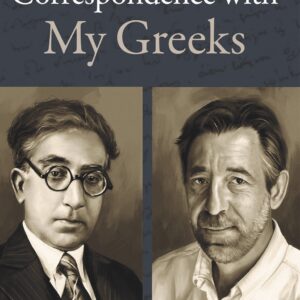I can’t remember what moved me to pick up David Whyte’s recently revised Consolations: The Solace, Nourishment and Underlying Meaning of Everyday Words; but I’m having trouble putting it down.
With the Table of Contents a list of common words in alphabetical order—and with a flip-through showing three to ten paragraphs per entry—you might think you’ve got in your hands a sort of dictionary. But you’ve got nothing of the sort. Whyte isn’t at all trying to define his words. Rather, he’s burrowing deep inside each of them, feeling its shape and concept from within its core.
Unsurprisingly, since Whyte is a prolific poet, an entry often starts with a metaphor:
Beauty is the harvest of presence…
Forgiveness is a heartache…
Friendship is a mirror…
Joy is a meeting place…
Loneliness is the doorway…
Nostalgia is the arriving waveform of a dynamic past…
Rest is the conversation between what we love to do and how we love to be…
Shyness is the hallway of presence…
From there, Whyte moves inside his word. And sometimes motion itself is his motif. “Pilgrim” as one “passing through” is what we might expect. But “Longing” as movement isn’t how we’d normally think of it: In longing we move, and are moving, from a known but abstracted elsewhere to a beautiful about-to-be-reached someone, something, or somewhere we want to call our own.
“Solace,” too, is envisioned as movement: Solace is a direct seeing and participation; a celebration of the beautiful coming and going, appearance and disappearance of which we have always been a part. Even “Silence” is in motion: To become deeply silent is not to become still, but to become tidal and seasonal, a coming and going that has its own inimitable, essential character, a story not fully told, like the background of the sea, or the rain falling, or the river going on, out of sight, out of our lives.
Silence, I was interested to find in a book on words, inserts itself into other entries, too. “Maturity” can only be sustained by real silence, by a daily discipline of silence and an inhabitation of spaciousness, a foundational giving away. And in “Pilgrim”: The courageous pilgrim life is the life that is equal to this unceasing tidal and seasonal becoming: and surprisingly, beneath it all, stillness, a friendship with silence….
But back to the “Silence” entry, because it includes one of Whyte’s motifs in the book: the “incarnational.” Out of the quiet emerges the sheer incarnational presence of the world…. Since Whyte is a practicing Buddhist, I was curious how he envisions incarnation—since I didn’t expect him to use it as a strictly Christian term. Here are some of his uses:
In “Loneliness”: To allow ourselves to feel fully alone is to allow ourselves to understand the particular nature of our solitary incarnation…
In “Maturity”: Maturity calls us to risk ourselves as much as we did in our immaturity, but for a bigger picture, a larger horizon; for a powerfully generous outward incarnation of our inward qualities and not for gains that make us smaller, even in the winning.
In “Run Away”: Strangely, we are perhaps most fully incarnated as humans when part of us does not want to be here. Presence may be only fully understood and realised [sic] through fully understanding our reluctance to show up.
In “Shadow”: Shadow is a beautiful, inverse confirmation of our incarnation. Shadow is intimated absence; almost a template of presence.
That sounds paradoxical: that “shadow” is both absence and “almost a template of presence.” But for Whyte, everything—even absence—intimates presence. “Presence” is in fact another of Whyte’s motifs throughout the book. (Recall those metaphors I quoted at the start: Beauty is the harvest of presence… and Shyness is the hallway of presence….) It is in “presence” that Whyte sees “incarnation”; indeed, the two act almost as synonyms. Whether together or separately, they point to the underlying reality of our lives, what I’d call our hereness, our thisness.
I collect books about words. Right here on my shelf I see Owen Barfield’s History in English Words (1953); C. S. Lewis’s Studies in Words (1960); William Empson’s The Structure of Complex Words (1967); and Raymond Williams’s Keywords: A Vocabulary of Culture and Society (1976).
Owen Barfield’s dual interest is in how European history, ancient to modern, has created certain English words, and how certain clusters of English words carry historical changes within them. Take, for instance, the word “honest.” While for Whyte, “honesty” is of course a character trait, Barfield’s interest in “honest” is how and when it came into English: “That the Feudal System had an educative value and played its part in creating modern ideals of conduct is suggested by such words as honest, kind, and gentle, which meant at first simply ‘of good birth or position’ and only acquired during the Middle Ages their later and lovelier meanings.”
C. S. Lewis is interested in what he calls “the semantic biography of a word”—not its derivation, but rather how it accumulates various meanings over time. New meanings don’t usually replace the old, so his analogy is to “a tree throwing out new branches, which themselves throw out subordinate branches.” Each chapter follows the life of a single word and its relations: for instance, nature or sad or simple or world. There’s no overlap with any of Whyte’s words.
William Empson offers a way of analyzing the nuances of poetic speech. So of course his presentation of the word “honest” couldn’t be farther from Whyte’s internalized meaning. Empson has three meaty chapters on “honest”: “Honest Man,” which traces its meanings from Chaucer through Shakespeare and Pope; “Honest Numbers,” which invents an elaborate schema for relating different nuances of the word; and “Honest in Othello,” which analyzes the fifty-two uses of “honest” and “honesty” in that play.
Finally, British leftist intellectual Raymond Williams explores in Keywords the histories and complex interconnections among words that refer to culture and society. His words are treated alphabetically, but with end-lists connecting each entry to others. Unsurprisingly, there’s no overlap between Williams’s and Whyte’s lists of words. Compare their “L”-words, for instance. Williams does labour and liberal; Whtye does loneliness and longing. The contrast is clear: Williams’s words are external, societal; Whyte’s are experiential.
All these books are rich, but all are looking at words from outside of them, as if driving by them to observe their history or interconnected meanings. How different is David Whyte’s Consolations: He sets up house inside each word and tells us what it’s like to live there.
Peggy Rosenthal has a PhD in English Literature. Her first published book was Words and Values, a close reading of popular language. Since then she has published widely on the spirituality of poetry, in periodicals such as America, The Christian Century, and Image, and in books that can be found here.





